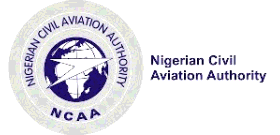 Nigerian airlines jack fares up as average economy ticket sells over ₦50,000; passengers groan.
Nigerian airlines jack fares up as average economy ticket sells over ₦50,000; passengers groan.
DOMESTIC airlines in Nigeria have jacked up air fares over an100% as prices of economy class tickets now range from ₦50,000 and above stressing the Jet A1 cost and availability, access to forex and other sundry reasons why the price shot.
Tickets that hitherto sold from ₦27000-₦29000 above have almost doubled as the domestic airlines seemingly rose from a parley in accord to effect the increment across board.
Currently the price of aviation fuel for costs above N410 in Lagos, N422 in Abuja and Port Harcourt, and N429 in Kano per litre while the dollar, which sells for between N580 to N600 is in short supply.
However some passengers who spoke to NigerianFLIGHTDECK say the hike has come at the worst time ever given that transportation by road is nearly non-existent and even the airline’s hiking fares are doing so despite poor, shabby service with no one calling them to order despite complaints here and there.
As at Sunday February 20,2020 an economy class domestic ticket on Max Air outbound Jos to Abuja from March 1, 2020 sells at ₦50,000 while Green Africa Airlines’ Lagos to Portharcourt goes for ₦35,000 as opposed to its ₦16,500 fare.
Same Green Africa sells its Owerri to Abuja flight tickets at ₦35,000, while Air Peace Lagos to Abuja sells at ₦50,000. Equally, Air Peace sells Lagos to Benin return ₦105,000.
Azman Air flight from Abuja to Kano from the same March 1 sells at ₦50,000 while Overland Airways Akure to Abuja goes for the same ₦50,000. Other airlines have equally towed the same line, Dana, Ibom Air, Aero Contractors all raising their ticket prices 100%
The airline’s last week in a seven paged letter gave 16 reasons why flights were always delayed and cancelled across board
The statement by the airline’s in part read out, “Unavailability and ever rising cost of Aviation Fuel – JetA1 today costs above N410 in Lagos, N422 in Abuja and Port Harcourt, and N429 in Kano per litre and has continued to rise fast and steadily. On top of the continuous rise in the fuel price, fuel supply is at best epileptic at several airports thereby causing delays.
“Unavailability of Forex for spare parts and maintenance – Airlines carryout most of their activities in dollars which today sells for between N580 to N600 and is in short supply. Nigeria’s domestic airlines are in a ‘life and death’ struggle to secure the Forex they need to acquire their spare parts to maintain their aircraft. This is a major influence on how quickly a grounded aircraft can be fixed and restored to its flight schedule, which in turn has a huge impact on the schedule reliability of the domestic airlines.
Lamenting, a passenger who identified himself as Joe said,”Well, if I was giving the opportunity to have the cash on hand I would not buy a ticket for ₦50,000. There are people plying the roads security or not, people travel everyday. They’ve ( airlines) stopped serving refreshment under the guise of COVID-19, they delay to the point its better you take train band worse is they don’t tell you anything.”
Madam Gertrude told NigerianFLIGHTDECK,” people will still fly but I tell you if the trains and roads get better this charade will end. You want to fly 5pm some one shifts your flight to 10pm saying no fuel, now that they have increased it let us see whether the service will come back, oga see even snacks they don’t give, I wonder what the basis is to increase if service is not there…” She said.
So far there has been no official response from the Nigeria Civil Aviation Authority ( NCAA) but the general consensus seems to be that air Fare has been deregulated long ago.
This, according to a source in the NCAA, means that the airlines are at liberty to fix air fares, not fix by government.
“It is now a function of market forces or what you called demand and supply. The Civil Aviation Policy however asked NCAA to check predatory practices ie undercutting each other in fixing air fares.
“Predatory practices happen when an airline choose to charge an unusually low fare as opposed to what is generally obtained.
“Then NCAA is meant to now ask questions as to how such fares can cover cost and still have returns on investment,” the source said.
